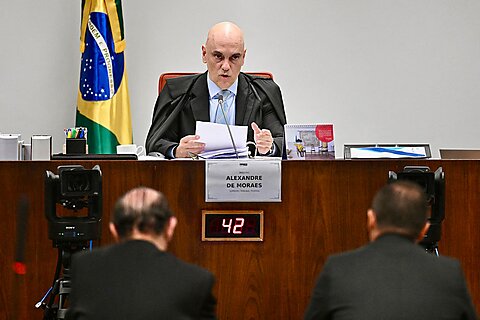The Trump administration recently announced that it would be sanctioning Brazilian Supreme Court Justice Alexandre de Moraes for his flagrant abuse of due process and censorship of not only countless Brazilians but also American individuals and companies. This comes just a couple of weeks after the Trump administration also revoked the US visas of Moraes, his family, and his allies on the court, barring them from entering the United States. Under the direction of Moraes, the Brazilian judiciary has taken increasingly authoritarian actions to cement its power and crack down on dissent. It has
seized powers to punish its political adversaries, both on the left and the right, in the name of protecting democracy;
ordered US social media companies to censor Brazilian and American speech with secret orders;
arrested individuals with no due process or charges, and raided the homes or seized the property of individuals for expressing non-violent ideas; and
overturned legal protections for platforms that carry online speech on little more than a whim after the legislature recently ruled out changes so that the court can police online speech as it deems appropriate.
The Trump administration is right that Justice Moraes and his allies are to blame for infringing on the rights and liberties of Brazilians and Americans.
But at the same time, Trump has also imposed 50 percent tariffs on many Brazilian exports as part of his quarrel with the Brazilian government. A 50 percent tariff is only adding yet another tax that Americans must pay for various goods they want to buy from Brazil. Most notably, Brazil accounts for about a third of America’s imports of unroasted coffee and is the number one producer of sugar in the world. And these tariffs also harm the average Brazilian working in these industries, the very Brazilians living under the arbitrary and speech-stifling rules set by the Supreme Court. As opposed to just targeting censorious, rights-abusing leaders, using broad tariffs hurts everyone but Moraes and his cronies.
Furthermore, the Trump administration’s justification for taking action would also be far more principled and persuasive if it were more consistent on free speech at home. Trying to deport immigrants for writing an op-ed with views the administration doesn’t like regarding Gaza, having the FCC openly pressuring major news companies to change their editorial positions under threat of government punishment, and more all weaken America’s ability to be the free speech champion that it should and can be.
















